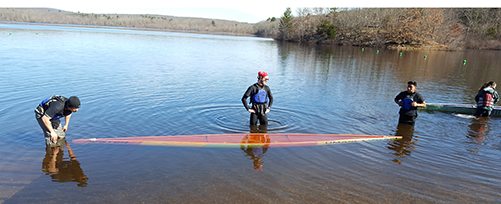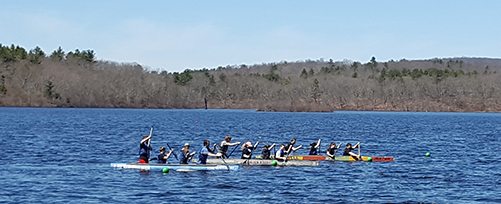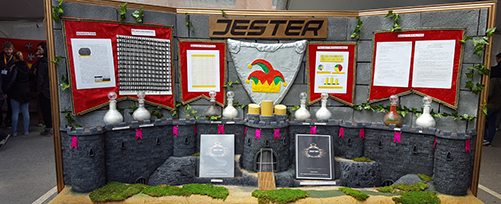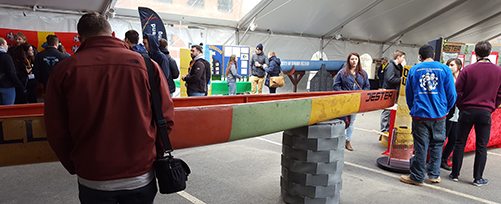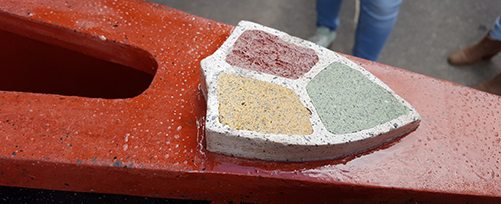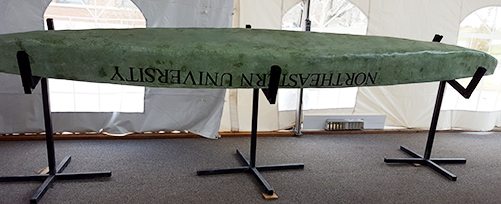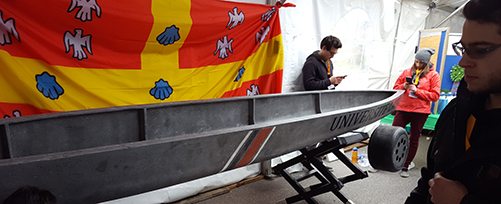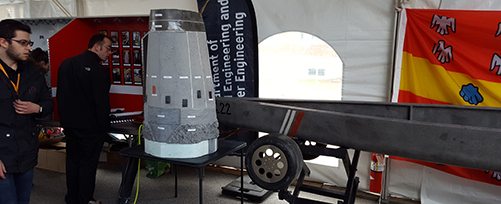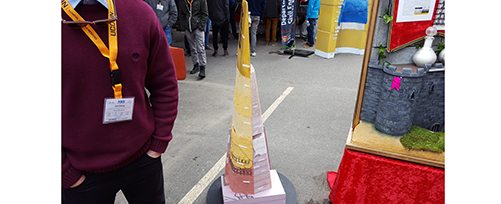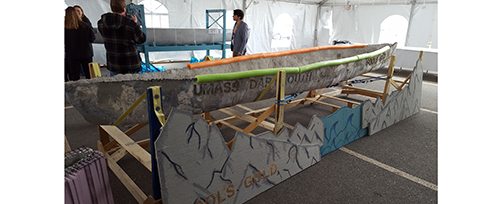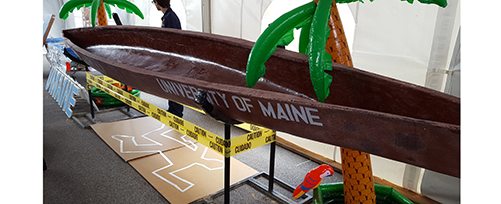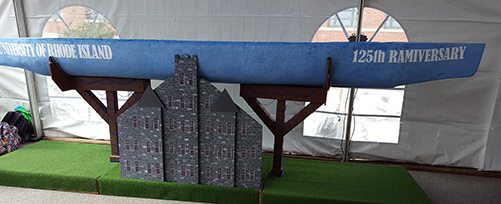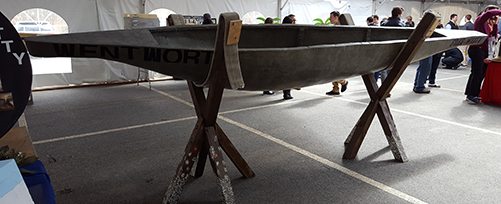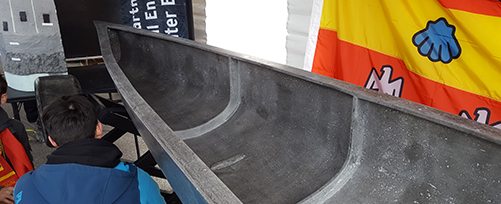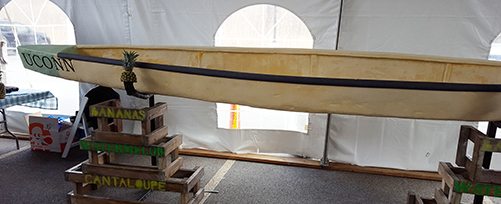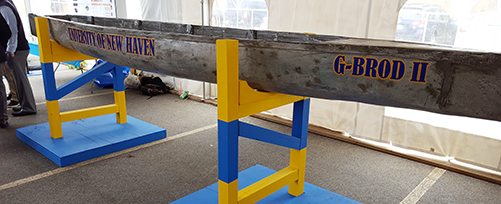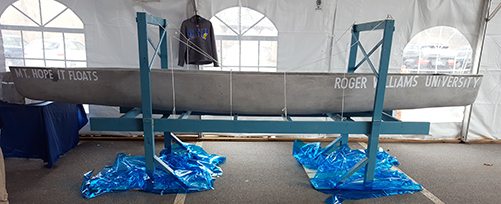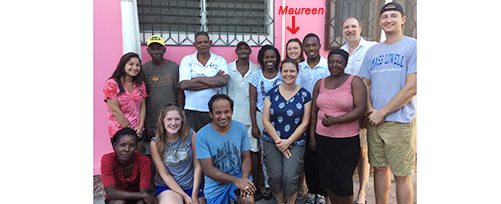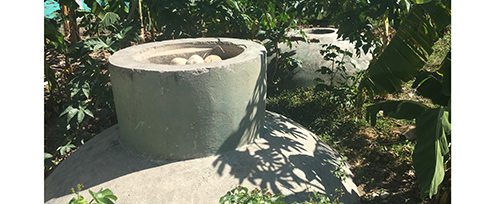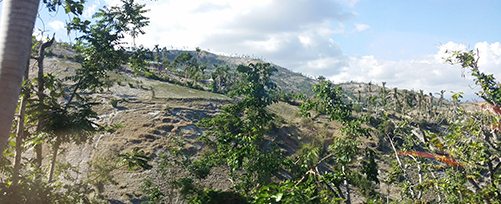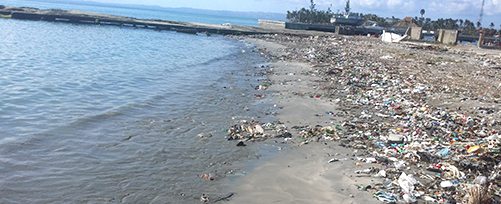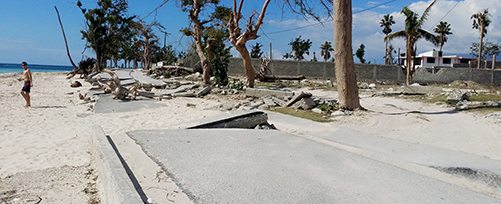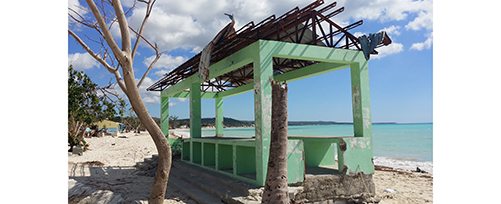
Maureen Kelly has a Bachelor of Science degree in Civil and Environmental Engineering, and a Master’s degree in Structural Engineering from the University of Massachusetts, Lowell. She was the Chi Epsilon Civil Engineering Honor Society Chapter President during 2014 and 2015. Maureen has a passion for engineering and for helping others. She has continued her involvement with the student engineering group at UMass Lowell. Maureen had an opportunity in January to travel to Haiti with the group to promote biodigesters as a means of sanitation and sustainable energy production. We asked Maureen if she would share her experience with us, and with you. She was delighted to tell her story, and to share her knowledge about the situation in Haiti. Thanks to Maureen and to all the engineers in her group who are making a difference in the lives of the Haitian people, for a better future. We hope you enjoy Maureen’s story below.
For more information about Biodigester Aided Solutions in Haiti or the Haiti Development Studies Center, please contact [email protected] or visit www.uml.edu/research/HDSC.
Working Towards a Sustainable Haiti
by Maureen Kelly, TFMoran Civil Project Engineer
On January 15th, a small group of students, alumni, and professors from the University of Massachusetts Lowell landed in Port-au-Prince for a week of teaching and research in Haiti. Among the group was TFMoran civil project engineer Maureen Kelly, who returned to work in the country for the first time since finishing school. Each traveler had specific goals for the week ahead. A geology professor carried suitcases of instruction materials, a mechanical engineer bore designs for a biomass grinder, and the civil engineering team prepared to inspect a biodigester at Pwoje Espwa, an agricultural teaching orphanage. Their home for the week was a research oriented facility in the southern city of Les Cayes.
The Haiti Development Studies Center (HDSC) was founded by UMass Lowell physics professor Dr. Robert Giles. Aiming to encourage sustainable change from within, HDSC allows educators and researchers access to an in-country “home base.” The use of the Center as a springboard helps to ensure that the technological solutions advanced by scientists and engineers are a good fit for the Haitian lifestyle and environment. Maureen, a UMass Lowell graduate, was first introduced to HDSC in the fall of 2016 through Biodigester-Aided Solutions in Haiti (BASH), a student group that aims to promote biodigesters as a means of sanitation and sustainable energy production. Combining the efforts of faculty, students, and alumni, BASH is working to improve access to biodigester technology.
Biodigesters for Fuel, Fertilizer, and Sanitation
Biogas, flammable gas produced by the biological breakdown of organic material, was observed by peoples as far back as the ancient Persians1 and biodigestion plants have been used to produce biogas for fuel dating back to 1850’s India2. Methane is the main component of biogas, and its combustion produces significantly less CO2 than the combustion of coal or oil3. It can be used to power generators, cooking stoves, and even converted vehicle engines. For communities in need of a sustainable fuel source, biodigesters offer a chance to produce methane reliably and responsibly.
In addition to the possibility of a sustainable fuel source, biodigesters can provide a means of sanitation. In Haiti, close to half of the population lacks access to clean drinking water and coverage of sanitation services is below 20%4. The capital city of Port au Prince, which hosts a greater population than Boston, has no public sewer system5,6. Waste of all types is commonly left in the streets and frequently blocks drainage structures. The mixture of surface runoff with trash and sewage allows contaminants to spread into streams and roadside ditches, which are utilized as sources of cooking, washing, and drinking water. Biodigesters can act as a tool for the disposal of organic material, and they can greatly reduce the pathogen load in a material like raw sewage7. The resulting slurry can be used to return vital nutrients to over-worked and eroded soils.
Preliminary research done by BASH confirms that biodigestion technology has a chance to become a viable source of fuel, fertilizer, and sanitation in Haiti. The tropical climate is ideal, the need exists, and the technology can be scaled to fit almost any size community. Locals need not wait for political stability and government investments in infrastructure to achieve a hygienic lifestyle, and the technology even has the potential to make money through biogas sales. The assessment performed by Maureen and others in January revealed that the existing biodigester at Pwoje Espwa is a poor candidate for rehabilitation. However, BASH quickly adapted to a new order of objectives as dictated by the needs on their project site.
The team has already begun the design of a new system that will use pig manure as a substrate. Heartened by the successful use of the concept elsewhere in the world, the team is preparing designs to build and test a prototype unit in Massachusetts over the summer of 2017. Once the team has gained the necessary data to instruct others in its construction and operation, the pig manure biodigester will be installed in Haiti and the biogas will power irrigation pumps. This pilot installation will be the basis for future iterations of BASH designs, marching ever closer to a sustainable sanitation tool for the people of Haiti. HDSC will play a pivotal role in the ability of BASH team members to develop their project into a reliable, socially acceptable, means of processing waste. The project combines technical hurdles with cultural roadblocks, making the in-country resources at HDSC a key to success.
The Haiti Development Studies Center: Progress through Education
BASH is not the only group whose work has been facilitated by HDSC. Teams affiliated with the Center have worked on varied projects including bio-sand water purification, primary school education, biomass fuels, and plastics-to-fuel conversion. These groups can stay in Haiti, near their project site, while they gather data, install equipment, and build personal relationships with in-country contacts. The Haitian staff and American facility director coordinate meals and transportation to make research in Haiti as safe and effective as possible. HDSC also employs interns, hardworking and academically talented young adults from Haiti who work at the Center. These interns, in addition to their regular duties, work overtime when guests are present. They assist visiting groups by serving as guides and translators.
The two interns currently working at HDSC are also UMass Lowell students, thanks to many months of preparatory work. When their local high school education fell short of the standards expected by American universities, Dr. Giles coordinated supplementary instruction to fill the gap. Today they are unique and resilient distance learners, completing college level courses despite the shortages of electricity, extreme weather events, and other challenges that come with everyday life in their home country. Even Hurricane Matthew, which tore a destructive swath through southern Haiti, did not deter these students from their studies.
Sustaining the Forces of Change
For those hoping to make a difference in the world, HDSC is a valuable asset and a symbol of international goodwill at its finest. Because instability reigns in Haiti, organizations with a consistent and agile presence have the best chance to effect lasting change. Through damaging storms, political unrest, and challenges in funding, Dr. Giles and his HDSC staff have built a facility that is well-regarded both at UMass Lowell and in its home city of Les Cayes. The Center is gathering attention among students, faculty, and alumni, as well as interested parties outside the University. Through participation and donations, this engagement is the force that keeps HDSC alive and able to facilitate progress through research and education.
References
- “Biogas.” US Department of Energy Federal Energy Management Program. https://www.wbdg.org/resources/biogas
- “A Short History of Anaerobic Digestion.” Penn State Extension. http://extension.psu.edu/natural-resources/energy/waste-to-energy/resources/biogas/links/history-of-anaerobic-digestion/a-short-history-of-anaerobic-digestion
- “Emission Factors for Greenhouse Gas Inventories.” United States Environmental Protection Agency. https://www.epa.gov/sites/production/files/2015-07/documents/emission-factors_2014.pdf
- “Water and Sanitation: Evidence for public policies focused on human rights and public health results.” Pan American Health Organization. 2011.
- “Mars 2015 Population Totale, Population de 18 Ans et Plus Menages et Densites Estimes en 2015.” March 2015. Institut Haitien de Statistique et d’Informatique (IHSI). http://www.ihsi.ht/pdf/projection/Estimat_PopTotal_18ans_Menag2015.pdf
- “QuickFacts Boston city, Massachusetts. United States Census Bureau. Accessed February 10, 2017. https://www.census.gov/quickfacts/table/PST045215/2507000
- Cuttica, John J. “Anaerobic Digester CHP.” Penn State Bioenergy Short Course Series. March 17, 2010. http://extension.psu.edu/natural-resources/energy/wood-energy/resources/2010-biomass-presentations/0106Digesters



